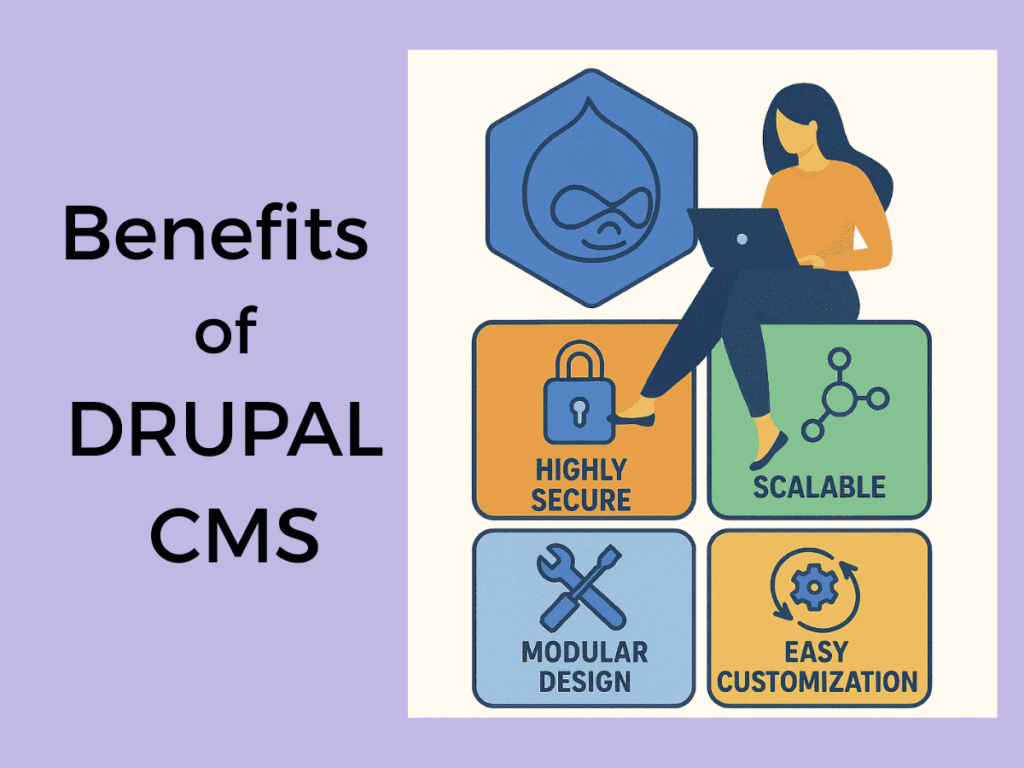Drupal is a powerful and flexible Content Management System (CMS) that is popular among developers and advanced users. It is open-source software, meaning it is free to use, modify, and distribute.

Here are some key features and benefits of Drupal:
Flexibility:
Drupal provides high flexibility and supports the creation of any type of website, from personal blogs to large-scale enterprise platforms. Developers especially use it for complex and highly customized websites.
Customizability:
Drupal is highly customizable, with a modular architecture that allows developers to build custom functionality and features for their websites. In addition, the large community of Drupal developers means there is a vast library of modules available to extend the core functionality of the CMS.
Security:
Drupal offers robust security features, including strong user access controls, secure coding practices, and regular security updates. Moreover, large organisations and government agencies choose it for their websites when they require the highest level of security.
Scalability:
Drupal is designed to be scalable, meaning it can handle large amounts of traffic and content without sacrificing performance. Hence, it is a good choice for websites that require high levels of traffic and content management, such as large news websites or online marketplaces.
Multilingual support:
Drupal has strong multilingual support, making it a good choice for websites that need to be translated into multiple languages. It includes built-in translation tools and supports right-to-left languages such as Arabic and Hebrew.
Community:
Drupal has a large and active community of developers, designers, and users who contribute to the development of the CMS, create modules and themes, and provide support to other users. This community is known for its helpfulness and expertise.
Accessibility:
Drupal provides accessibility for all users, including those with disabilities. It offers built-in accessibility features and allows customization to meet the specific accessibility needs of individual websites.
Overall, Drupal is a powerful and flexible CMS that is a good choice for large and complex websites that require high levels of customizability, security, and scalability. Importantly, its large and active community of developers and users provides a wealth of resources and support for those who choose to use it.
Get ZERO WEBSITE Development Cost for your ART Website >> Visit the link below:
https://masterpiecegalery.com/create-an-art-website/
- Agentic AI: The new Trending Evolution of Artificial Intelligence/2026
- Top Trending Tech topics to rank higher in 2025
- What is CDN in Hosting? How it benefit websites in 2025?
- Best Learning Pathway for Full stack Developer 2025
- How to earn money from your blog? 2025
Improve SEO of written Content LINK BELOW:
https://designaxy.com/how-to-improve-seo-of-written-content-2023/




